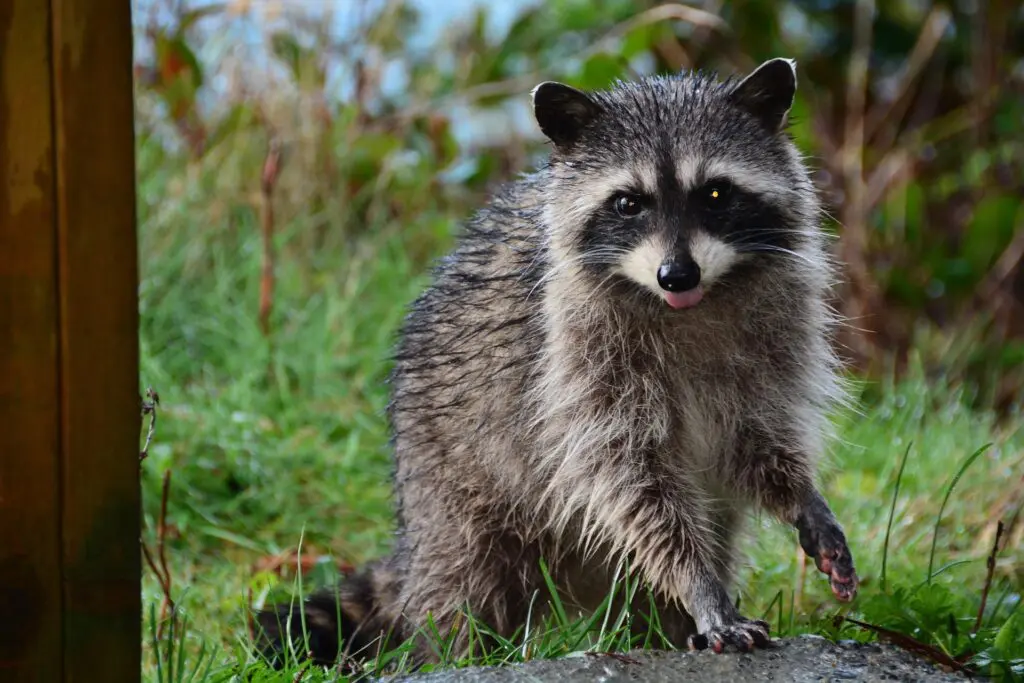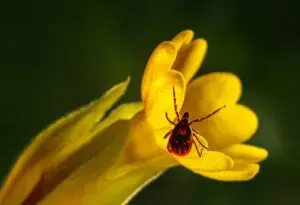
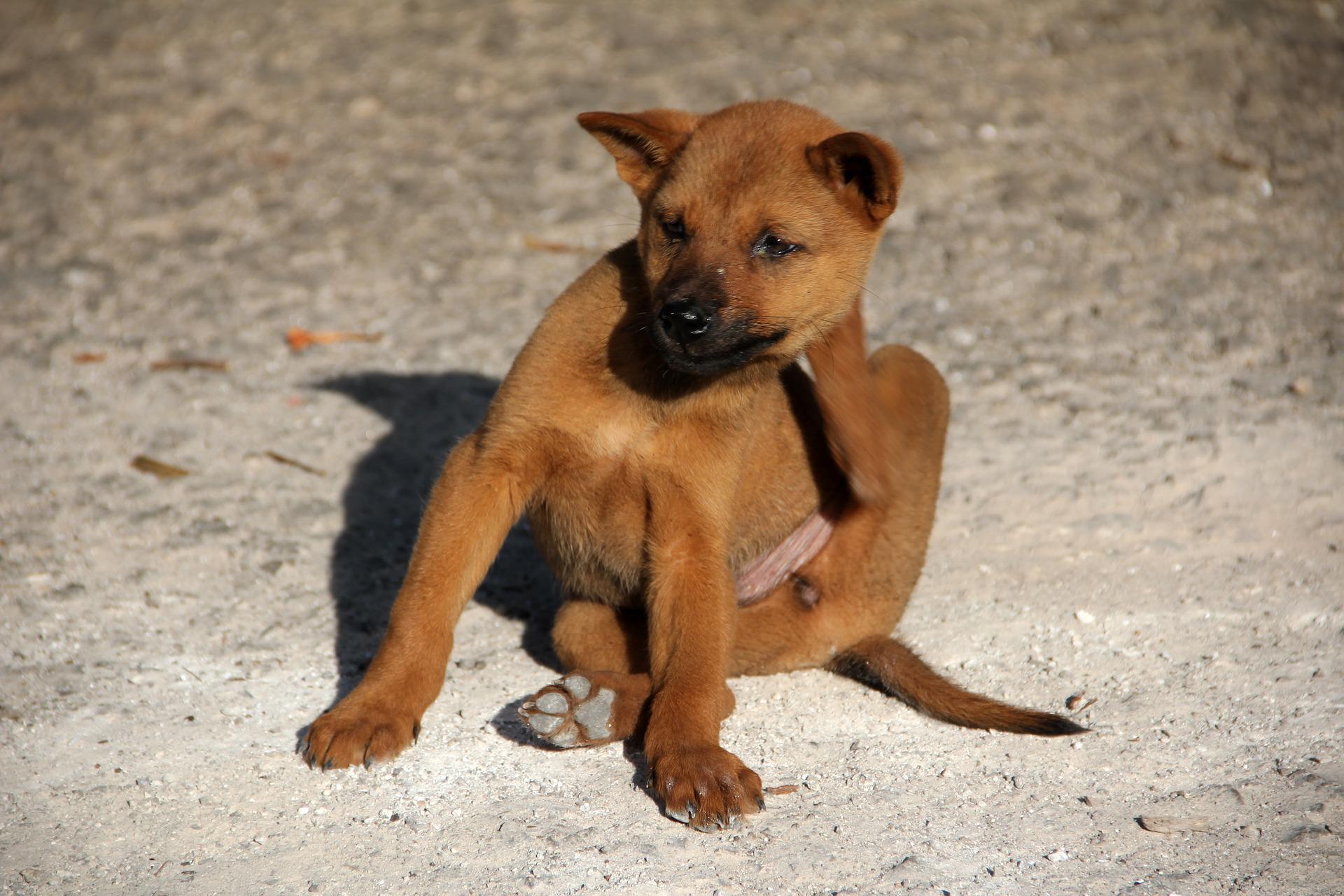
Many pests are just as dangerous to pets as they are to humans, if not more so. Some seek out our furry friends; others are sought out by cats and dogs that are just a little too curious (or hungry) for their own good. Read on to learn which pests are most dangerous to your beloved pets, as well as how to prevent them.
Ticks
Ticks are known to carry and transmit a number of diseases and parasites. Some of the illnesses they can pass to pets include Lyme disease, anaplasmosis, Rocky Mountain spotted fever, tularemia, hepatozoonosis, cytauxzoonosis and more. In addition, some species like the American dog tick can cause paralysis in pets. After your pets spend time outdoors, check them all over for ticks. If you find a tick, remove it immediately using tweezers to pull it straight out. If the head remains embedded in the skin, do not worry- it cannot do any damage at this point and it will fall out on its own before too long. Wash the area with soap and water to prevent infection and place the tick in a sealed bag or container, place it in alcohol, or flush it down the toilet.
Fleas
Fleas are hazardous to pets for a few reasons. They can transmit pathogens like tapeworm and bartonellosis. Their saliva can also cause allergic reactions in some pets which usually appears as severe dermatitis. An infestation on a pet can cause anemia and lead to excessive scratching, which can in turn lead to open wounds and secondary infections. Pets should receive regular flea and tick treatments in the form of a collar, spray, medicine, or shampoo. Ask your vet which method is best for your furry friends. In addition to preventative treatments, consider keeping long-haired coats trimmed. To avoid a flea infestation, run a comb through your pet’s fur before bringing them back inside, wash their bedding regularly, and vacuum regularly, especially in the areas your pets hang out the most.
Botflies
Botflies are large insects whose larvae are like something out of a horror movie. Adult botflies lay their eggs on small animals like rodents, rabbits, and pets. When the eggs hatch, the larvae enter their host’s body through the mouth or nose, or through a wound. They then burrow beneath the skin causing lumps to appear on the skin’s surface. To prevent your pet from picking up botflies, try to steer them away from small animals and their burrows. Check your pets’ skin regularly for any abnormal bumps and contact your vet if you find any.
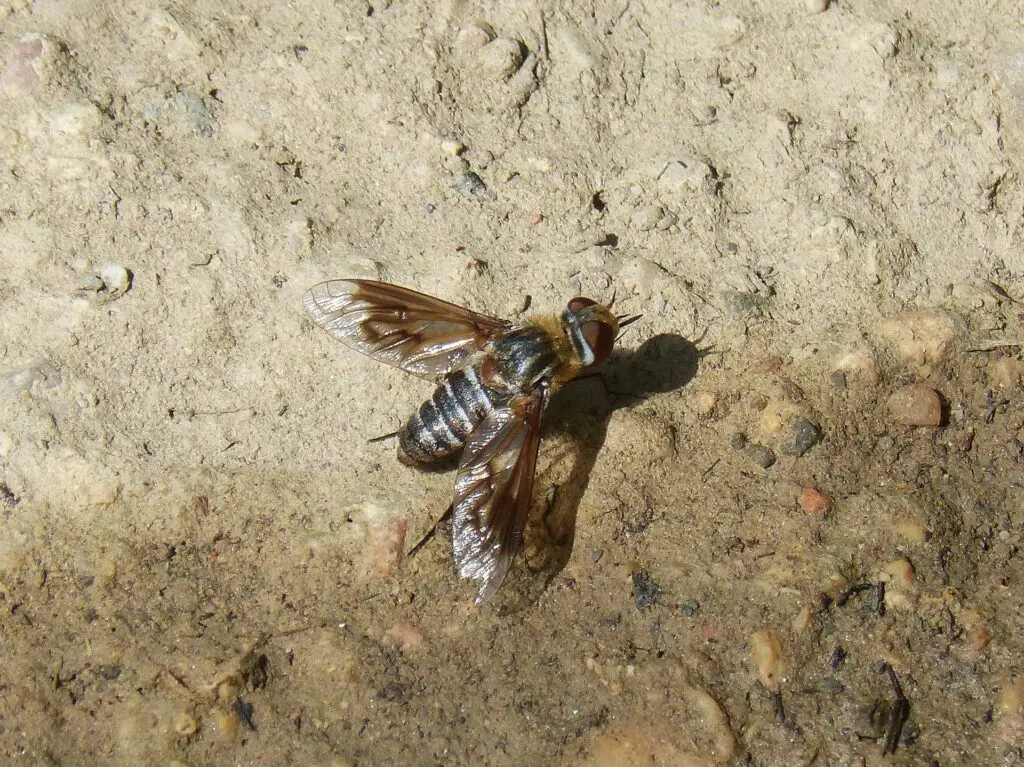
Mosquitoes
Mosquito bites are unfortunately just as itchy for our pets as they are for us. The real danger mosquitoes pose to pets is not in the itchiness of their bite, though. Mosquitoes can carry and transmit heartworm, which is very dangerous when left untreated. Luckily, heartworm is easily preventable with medications and there are treatments available in the case that a pet does contract it. Take measures to prevent mosquitoes on your property. This means removing sources of standing water, cleaning gutters regularly, aerating ornamental pools or stocking them with fish, changing birdbath water daily, keeping trees and shrubs trimmed, eliminating debris piles, and landscaping with plants that repel mosquitoes. Such plants include alliums, basil, citronella, floss, lavender, marigold, mums, and rosemary. Cedar mulch has the same repellent effect.
Caterpillars
There are many types of caterpillars, and different species will cause different reactions when ingested by a pet. The hairs on species like the wooly caterpillar can get stuck in pets’ throats and cause gagging, coughing, and excessive salivation. Other species like gypsy moth larvae are toxic and can lead to painful intestinal issues. Monarch caterpillars eat milkweed, which is poisonous to dogs. To prevent caterpillars, landscape with plants like lavender, mugwort, peppermint, and sage.
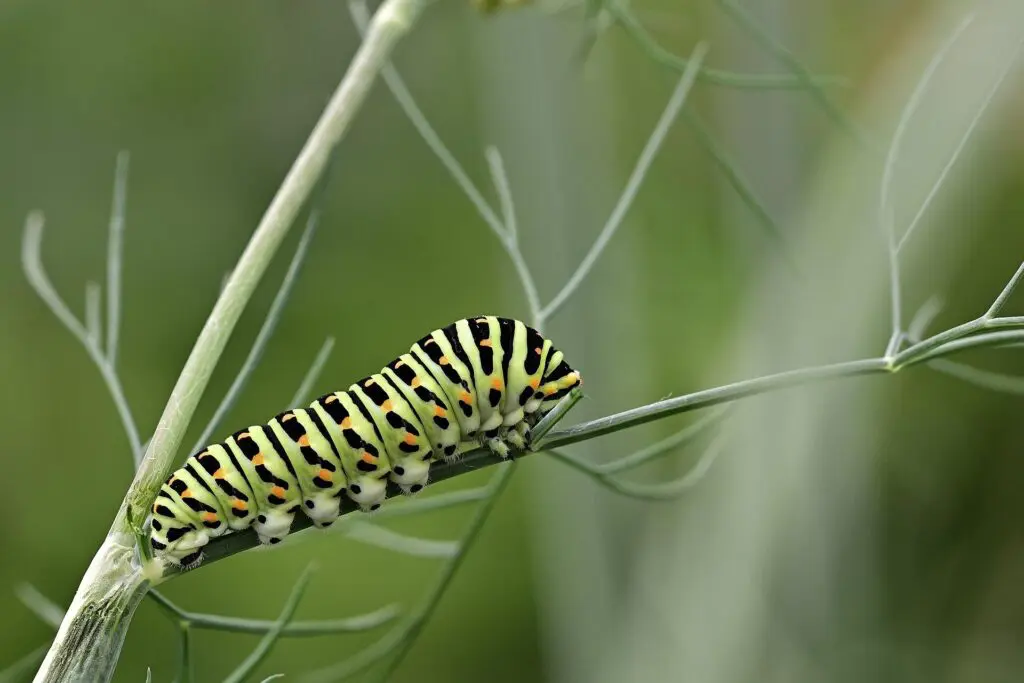
Rodents
Cats and dogs love hunting rodents, but this instinct is not always good for them. Rodents are not the cleanest pests and are carriers of a long list of diseases like toxoplasma, leptospirosis, rat bite fever, and more. If a pet ingests an infected rodent, they may contract whatever diseases that rodent had. If a pet eats a rodent that has recently ingested rodent poison, they are at risk of secondary poisoning. Rodents also commonly transfer certain parasites to pets, including fleas, ticks, and roundworms. Rodents can bite pets, though this does not occur often. To keep rodents out of your home or business, seal all possible entryways, limit clutter both indoors and out, keep garbage in sealed garbage cans, and use castor oil-based repellents in soil areas.
Cockroaches
Cockroaches are especially filthy insects that can carry a variety of bacteria and parasites. Along with other bugs like grubs and crickets, cockroaches have been known to feed on feces. Any feces-eating insects can cause stomach worms in pets that ingest them. Cockroaches generally run away from pets, but they are attracted to pet food and may be accidentally eaten if a food bowl becomes infested. Even if an actual cockroach is not ingested, the insects leave illness-causing bacteria everywhere they walk, including on pet food. To keep your pets safe from cockroaches, only leave their food bowls out at meal times and dispose of any leftovers.
Biting and Stinging Pests
Bites and stings from pests like ants, bees, wasps, and spiders can cause reactions in pets that are similar to the reactions humans experience- i.e. painful bumps, redness, swelling, difficulty breathing, and anaphylaxis. Try to keep your pets away from nests and hives, as a disturbed colony can lead to a multitude of stings or bites. Seal up all gaps through which these pests could enter your home or business.
Kissing Bugs
Kissing bugs feed on blood and are found in Southern states including Florida. They prefer warm-blooded animals and usually bite around the eyes or mouth while the host is asleep. After feeding, kissing bugs have a rather disgusting habit of defecating on or near the spot they just bit. The feces can then enter the bite and, if the bug was a carrier, infect the host with the parasite that causes Chagas disease. To keep kissing bugs out, seal all possible entryways, avoid outdoor lights at night, keep firewood piles away from the exterior of your home or business, and check your pets’ fur before they return indoors.
Raccoons
Raccoons do not usually attack pets, but they will if they feel threatened, or if they have rabies. Though they are relatively small, raccoons have extremely sharp claws and teeth with which they can do a surprising amount of damage. They tend to attack the eyes, mouth, and nose. Luckily, raccoons rarely cause physical damage beyond scratches and gouges. However, these scratches can lead to the transmission of viruses like rabies or to secondary infections. To prevent raccoons on your property, use sealed garbage cans, protect your vegetable garden, avoid leaving pet food outdoors, treat your lawn for grubs, use repellants like motion activated lights or sprinklers, and block entryways to potential hiding spots like sheds and spaces beneath decks.
If any of these vermin are showing up around your home or business, give Excel a call or check out our residential pest control services or our commercial pest control services. With Excel, you and your pets can relax on the pest-free property you deserve.
